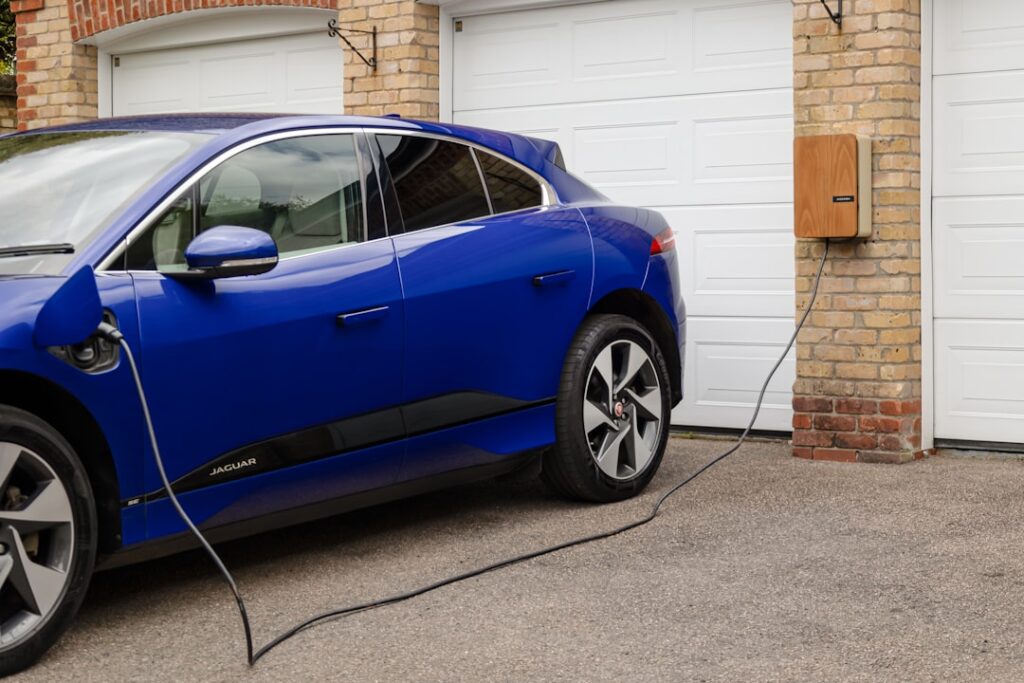Latest Electric Vehicle Trends: Innovations Shaping the Future
The automotive industry is evolving rapidly, with the latest electric vehicle trends showcasing groundbreaking innovations that promise to reshape transportation. From advancements in battery technology to the integration of artificial intelligence, these trends not only enhance the performance of electric vehicles (EVs) but also contribute to a more sustainable future. This article explores the most significant innovations driving the electric vehicle market forward.
Advancements in Battery Technology
One of the most critical aspects of electric vehicles is their battery systems. Recent advancements have led to the development of batteries that are not only more efficient but also environmentally friendly. Here are some key innovations:
Solid-State Batteries
Solid-state batteries are gaining attention as a potential game-changer in the electric vehicle industry. Unlike traditional lithium-ion batteries, solid-state batteries use a solid electrolyte, which can significantly increase energy density and safety. This technology promises longer range on a single charge and faster charging times.
Improved Lithium-Ion Batteries
While solid-state batteries are still under development, improvements in lithium-ion technology continue to enhance their performance. Innovations include:
- Higher Energy Density: Enhancements in chemical composition have led to batteries that store more energy, extending the driving range of electric vehicles.
- Faster Charging: New fast-charging solutions allow EVs to recharge in a fraction of the time, making them more convenient for everyday use.
- Longer Lifespan: Advances in battery management systems help increase the longevity of lithium-ion batteries, providing consumers with better value.
Integration of Artificial Intelligence
Artificial intelligence (AI) is revolutionizing the electric vehicle landscape by enhancing various aspects of their design and operation. Here are some notable trends:
Smart Driving Assistance
AI-powered driving assistance systems are becoming standard in electric vehicles. These systems contribute to overall safety and convenience by providing features such as:
- Adaptive Cruise Control: Automatically adjusts the vehicle’s speed to maintain a safe distance from other cars.
- Lane Keeping Assist: Helps drivers stay in their lanes, reducing the likelihood of accidents.
- Predictive Maintenance: AI can analyze vehicle performance data to predict issues before they occur, leading to timely maintenance and repairs.
Enhanced Autonomous Driving Capabilities
As companies invest in autonomous technology, electric vehicles are leading the charge. Key developments include:
- Full Self-Driving Features: Ongoing advancements are moving towards fully autonomous driving, with vehicles capable of navigating complex environments without human intervention.
- Data-Driven Insights: AI systems use vast amounts of data from sensors and cameras to improve navigation algorithms, making autonomous driving safer and more reliable.
Impact of Sustainable Manufacturing Processes
As the demand for electric vehicles grows, manufacturers are adapting their production processes to prioritize sustainability. This includes:
Eco-Friendly Materials
Innovations in materials science are facilitating the use of sustainable and recyclable materials in vehicle design, reducing the overall environmental impact.
Energy-Efficient Production
Electric vehicle manufacturers are implementing energy-efficient practices in their production facilities. Techniques include:
- Renewable Energy Sources: Utilizing solar, wind, and other renewable resources to power factories.
- Waste Reduction Techniques: Implementing measures to minimize waste during the manufacturing process.
The Role of Charging Infrastructure
As the number of electric vehicles on the road increases, the need for a robust charging infrastructure becomes paramount. Innovations in this area include:
Fast Charging Stations
New developments in charging technology have led to the creation of ultra-fast charging stations that can provide substantial range in just minutes, making electric vehicles more practical for long journeys.
Wireless Charging Solutions
Implementing wireless charging technology at home or in public spaces can make the charging process more convenient, allowing vehicles to charge without the need for plugging in.
Conclusion
The latest electric vehicle trends highlight a dynamic shift in the automotive industry toward cleaner, safer, and more efficient transportation. Innovations in battery technology, AI integrations, sustainable manufacturing, and improved charging infrastructure all work together to create an electrifying future for mobility. As these trends continue to evolve, they will not only enhance the consumer experience but also play a crucial role in addressing the global challenges of climate change and energy sustainability.
Smart Charging Solutions
The latest electric vehicle trends indicate a significant shift toward smart charging solutions that optimize energy consumption. These systems not only allow electric vehicle users to charge during off-peak hours, thereby reducing costs, but also integrate renewable energy sources. As technology advances, we see the rise of vehicle-to-grid (V2G) systems, enabling EVs to return energy to the grid, promoting sustainability and helping to balance energy demand.
Wireless Charging Technology
Another innovation contributing to the latest electric vehicle trends is wireless charging technology. This breakthrough offers a seamless charging experience where drivers can simply park their vehicles over charging pads, eliminating the need for cables. While this technology is still in its infancy, it holds promise for convenience and efficiency, encouraging more people to transition to electric vehicles without the hassle of traditional charging methods.
Next-Gen Battery Technology
Advancements in battery technology are also shaping the latest electric vehicle trends. Researchers are developing solid-state batteries that promise to deliver higher energy densities and shorter charging times compared to conventional lithium-ion batteries. These new batteries could not only increase the range of electric vehicles but also enhance safety and longevity, making EVs an even more attractive option for consumers.
Recycling and Sustainability Efforts
As the demand for electric vehicles rises, so does the need for sustainable practices in battery production and disposal. The latest electric vehicle trends include a focus on recycling initiatives aimed at reducing the environmental impact of battery materials. Manufacturers are investing in methods to reclaim valuable materials from used batteries, ensuring a circular economy and reinforcing the commitment to sustainability within the electric vehicle industry.


